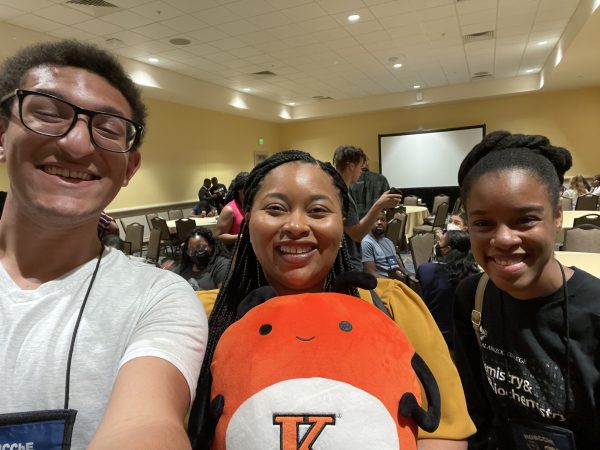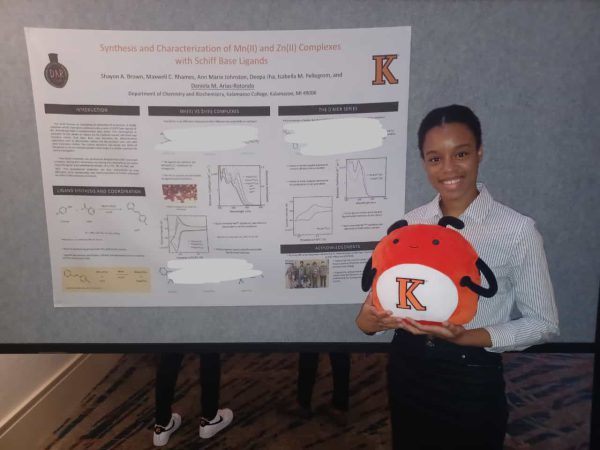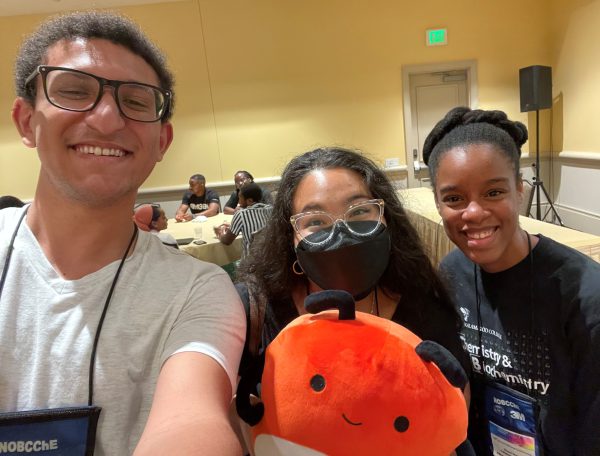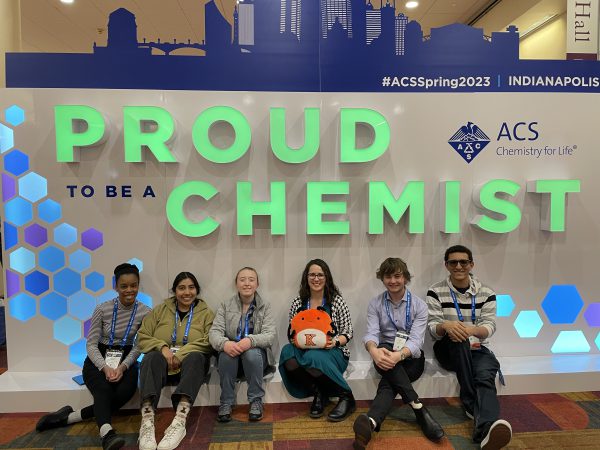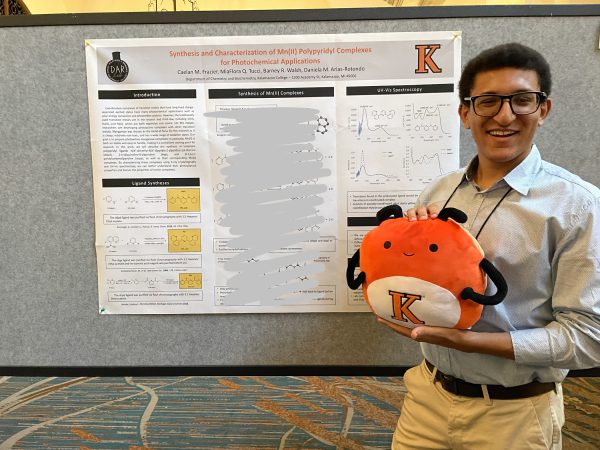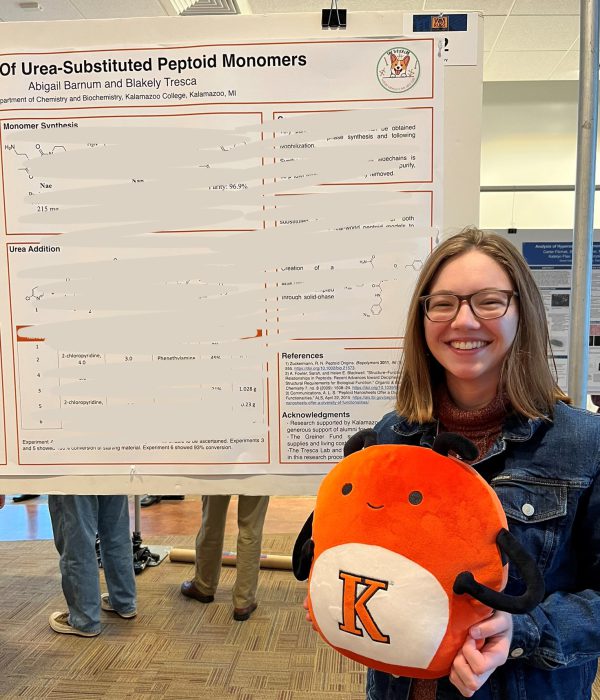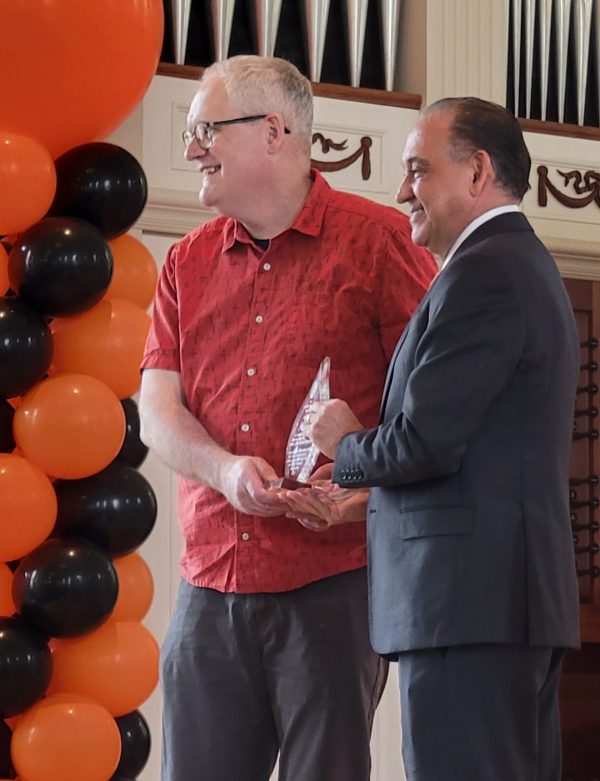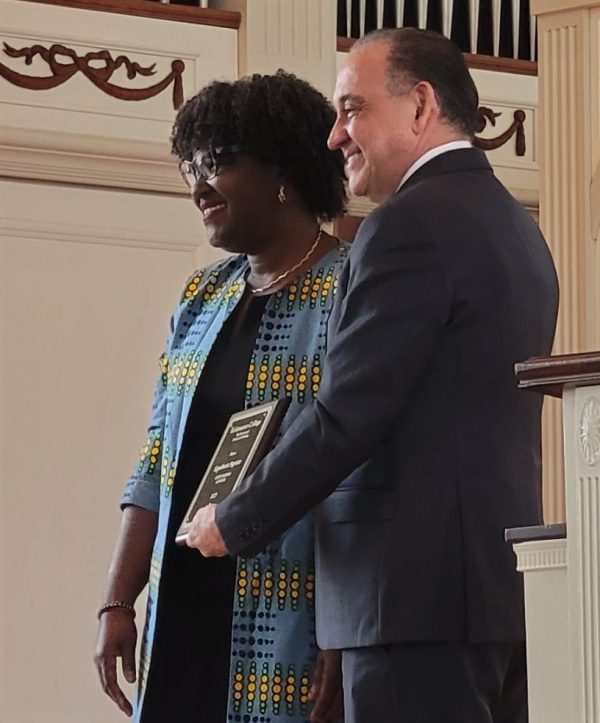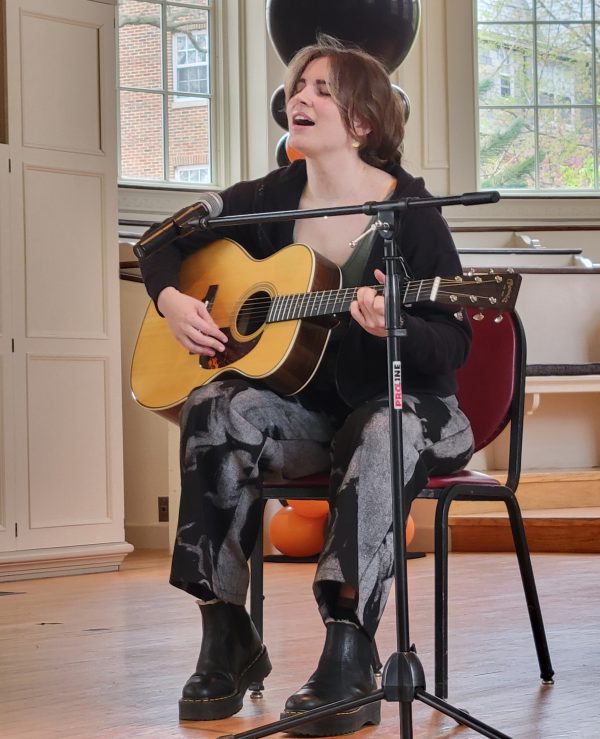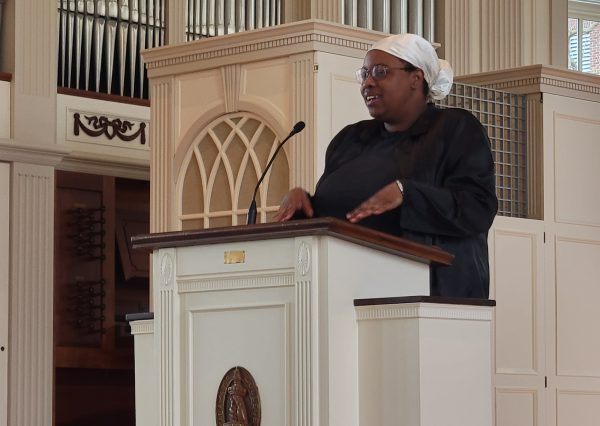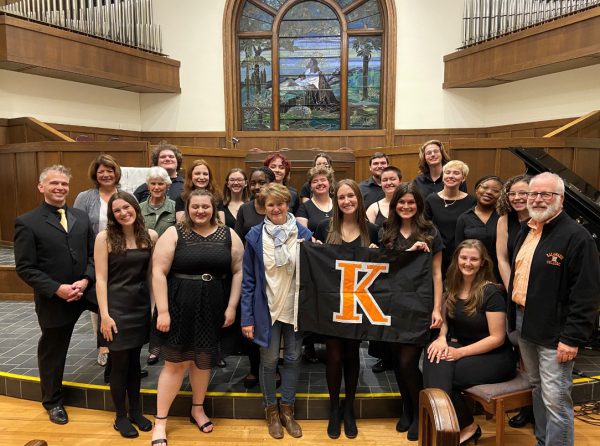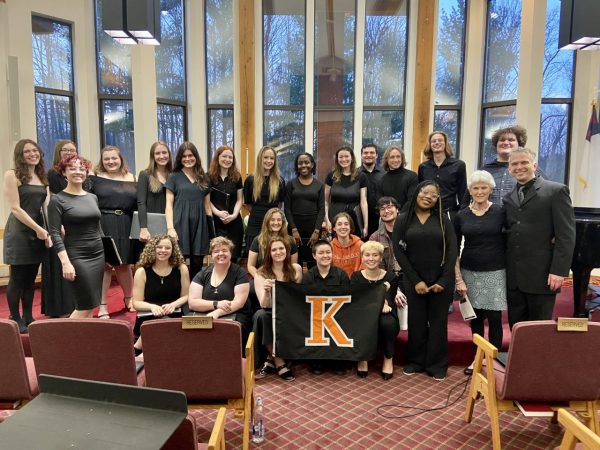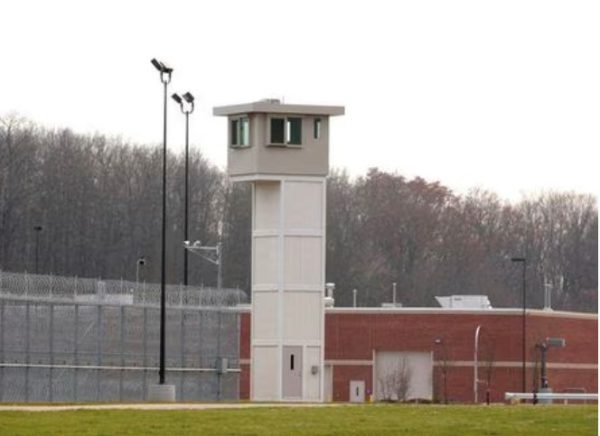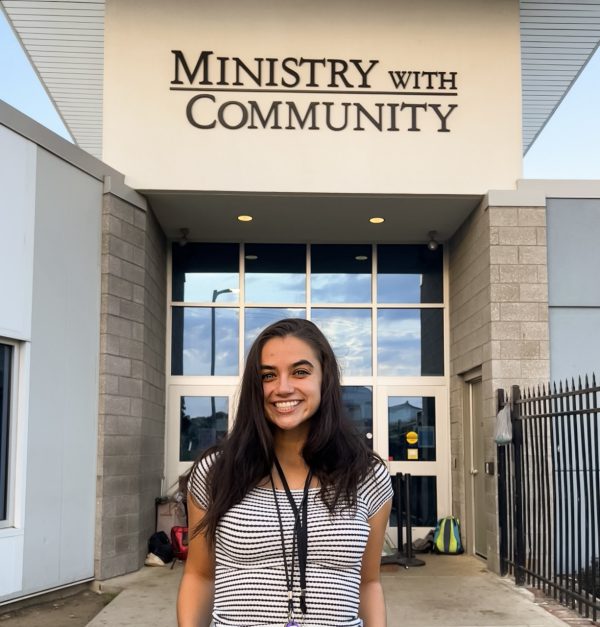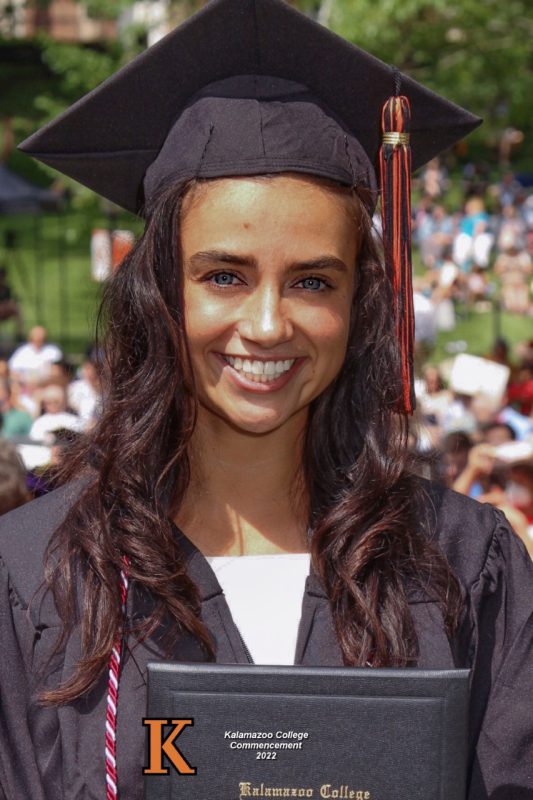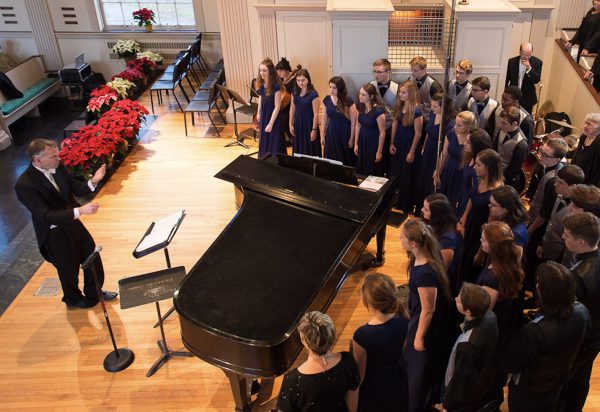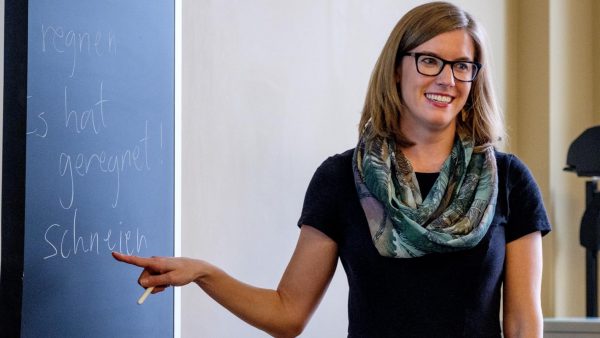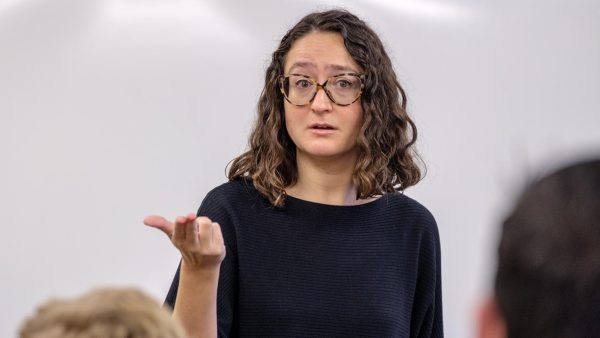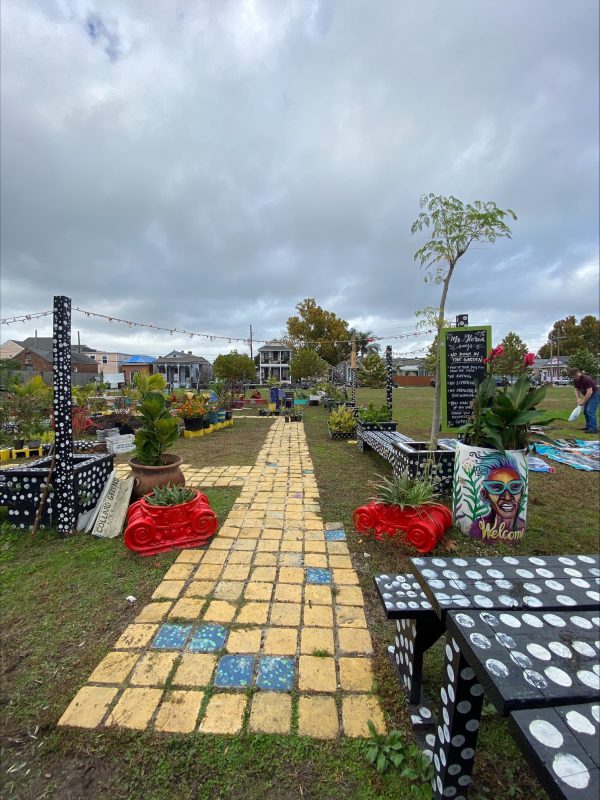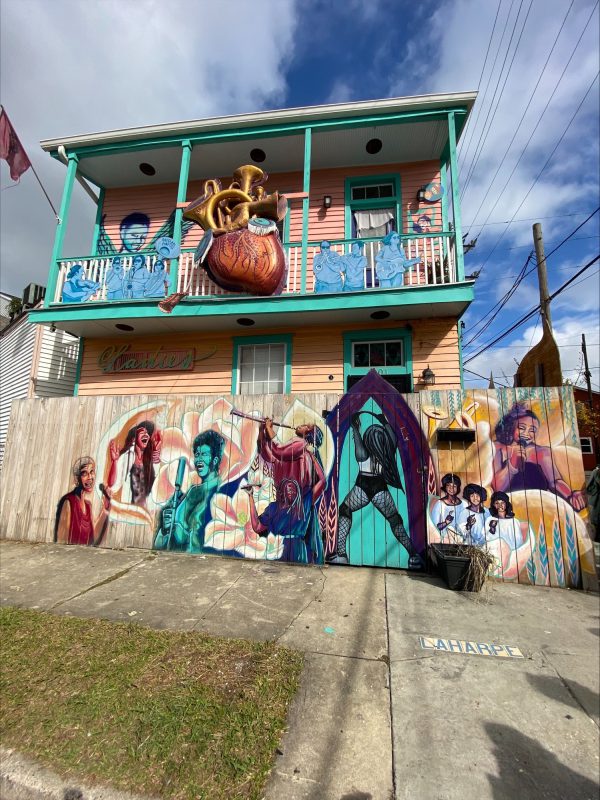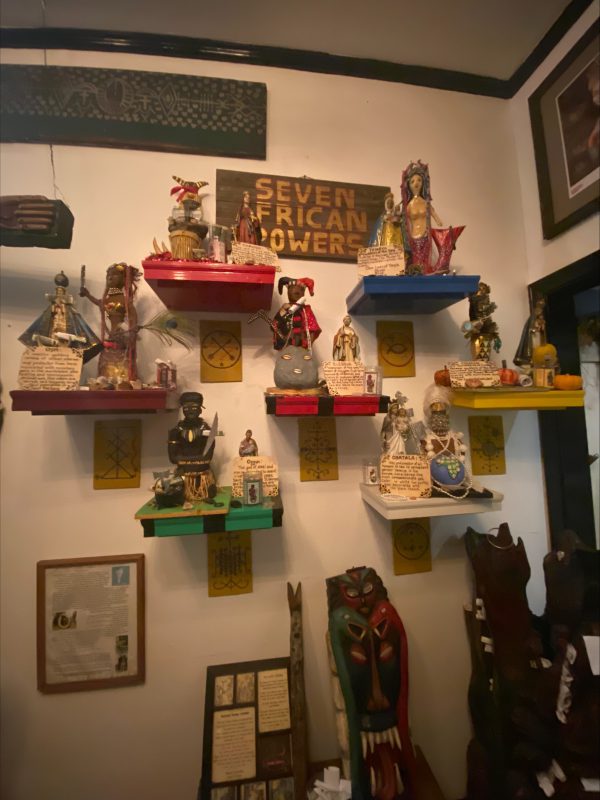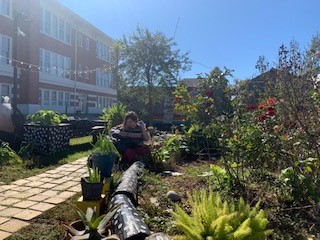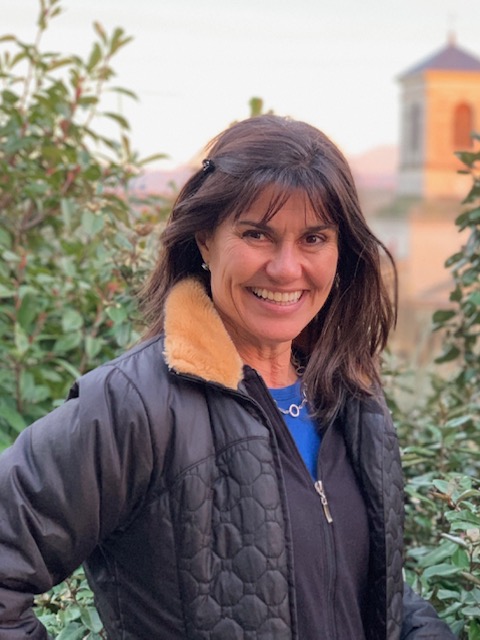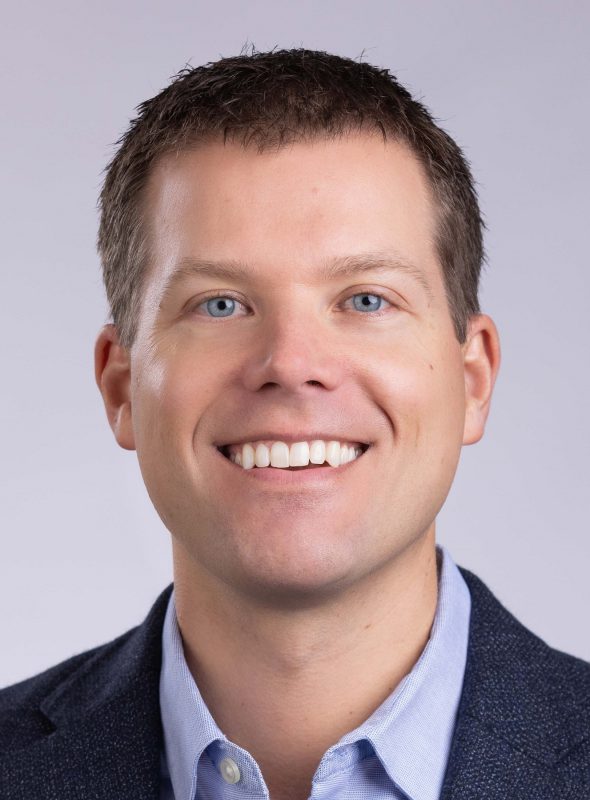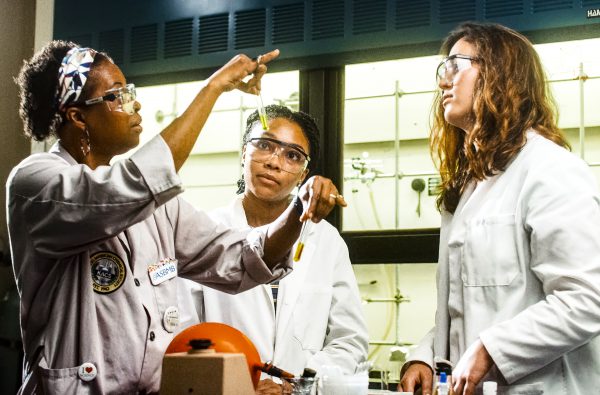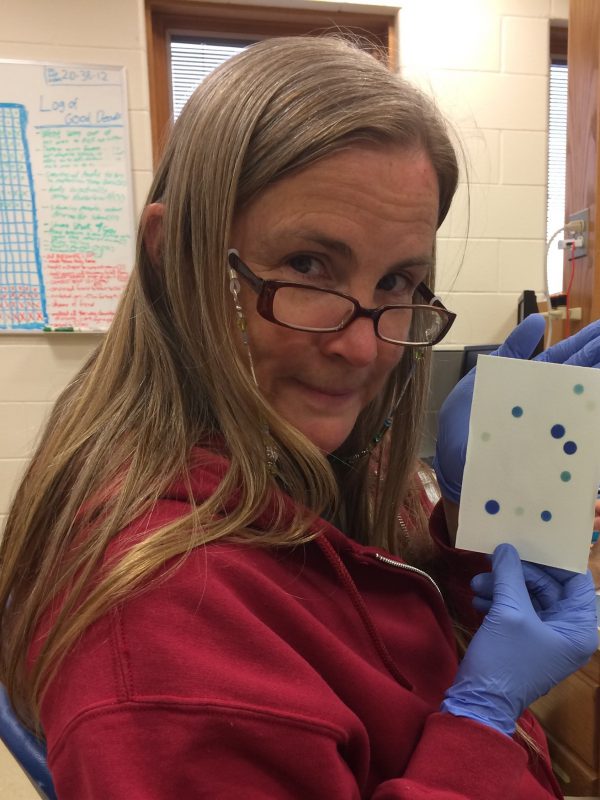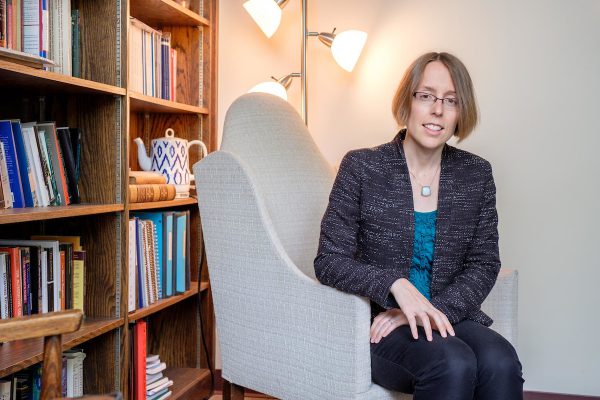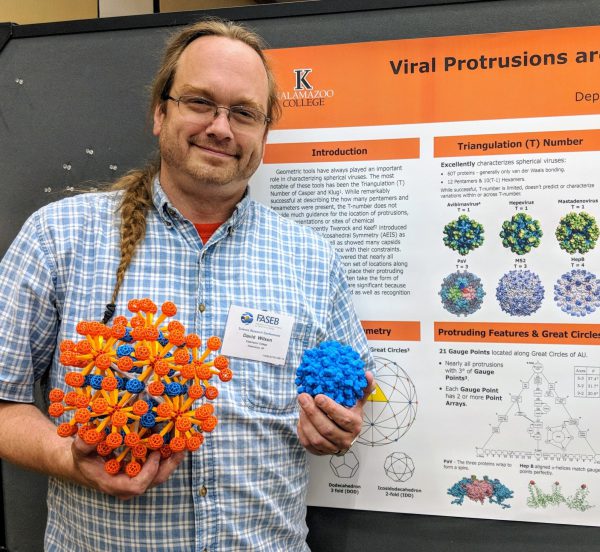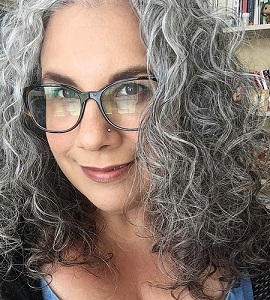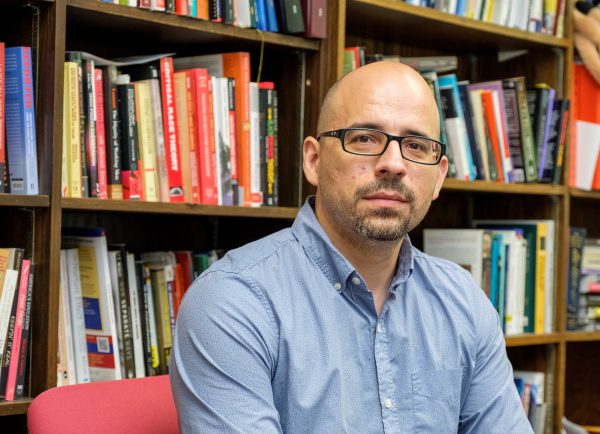Kalamazoo College STEM-related academic departments are celebrating a banner year as the overall number of current students and alumni receiving National Science Foundation (NSF) graduate research fellowships reaches four, the most since 2016.
The Graduate Research Fellowship Program (GRFP) recognizes and supports outstanding students who pursue research-based master’s and doctoral degrees at accredited U.S. institutions. A five-year fellowship covers three years of financial support, including an annual stipend and a cost-of-education allowance to attend an institution along with access to professional-development opportunities.
About 2,000 applicants are offered a fellowship per NSF competition in fields such as chemistry, biology, psychology, physics and math. This is the first year since 2013 that two current K students, Claire Kvande ’23 and Mallory Dolorfino ’23, have earned awards. Two alumni also have earned fellowships, Cavan Bonner ’21 and Angel Banuelos ’21.
“The NSF Graduate Research Fellowship is a highly competitive program that is only awarded to about 16% of the applicants, who represented more than 15,000 undergraduates and graduate students across all STEM fields,” Roger F. and Harriet G. Varney Assistant Professor of Chemistry Blakely Tresca said. “Approximately 2,500 awards were offered this year across all STEM fields and the vast majority of them go to students at large research universities and Ivy League schools. It is rare to see more than one or two awards at an undergraduate-focused college, particularly at a small liberal arts school like K. It is exceptional for schools in the GLCA (Great Lakes Colleges Association) to have one award in a year, and four awards is a truly outstanding accomplishment for these students.”
Claire Kvande ’23
Kvande has been a double major in physics and chemistry with minors in math and French at K. She credits faculty members such as Dow Distinguished Professor of Natural Science Jan Tobochnik and Associate Professor of Physics David Wilson, along with a wide range of courses, for preparing her to receive an NSF fellowship.
“I like the nitty gritty of sitting down and figuring out how to approach a problem within physics even though it’s often hard,” she said. “I really like work that is grounded in real-world problems and it’s part of why I’m interested in the subfield of condensed matter. There’s a lot that stands to be applied to technologies that I think could improve our world and help a lot of people.”
Kvande will attend the University of Washington this fall, where she plans to extend her Senior Integrated Project (SIP) work, which examined how charge-density waves relate to superconductivity within condensed matter.
“Superconductivity is a tantalizing physics concept,” she said. “If we could realize superconductivity at room temperature, it would allow us to do a lot with energy saving and revolutionize how we use electricity. There are schools of thought that say charge-density waves would be helpful in achieving that and others that say it would be hurtful. Since we really don’t know how superconductivity works, this is worth investigating so we can hopefully better understand this powerful phenomenon.”

Mallory Dolorfino ’23
Dolorfino, a computer science and math double major, also will attend the University of Washington, where they will pursue a doctorate in math.
“I didn’t really like math until I came to K,” Dolorfino said. “I took calculus in high school and I was just not going to take any more in college until one of my senior friends told me when I was a first-year student to take linear algebra. I took that and Calculus 3 online during the first COVID term and I just kept doing math, so I switched my major. It’s not like other subjects because you can work for hours and not get anything done. That’s frustrating at times, but it’s fun to understand it enough to prove things logically.”
Dolorfino credits several faculty members for their growth and success at K, leading to their NSF opportunity. They include Tresca, who helped students keep track of their NSF application timelines and materials; Associate Professor of Mathematics Michele Intermont, who provided letters of recommendation and application assistance for research opportunities and graduate school; and Assistant Professor of Mathematics Stephen Oloo, who provided invaluable feedback regarding their research proposal and many conversations about math.
Dolorfino remains in contact with a professor they worked with in a math-focused study abroad program in Budapest. The two of them conducted a monthlong research project in algebraic number theory, which is a foundation in applications such as encryption and bar codes. Their NSF application proposes group theory work, which is what she based some research on last summer at Texas State University. They hope their NSF work will help them become a college professor one day. “There are a lot of math institutions on the West Coast and specifically in the Northwest, so I will have really good connections there,” said Dolorfino, who agreed the award is an honor. “I was grateful for the people at K who helped me apply.”
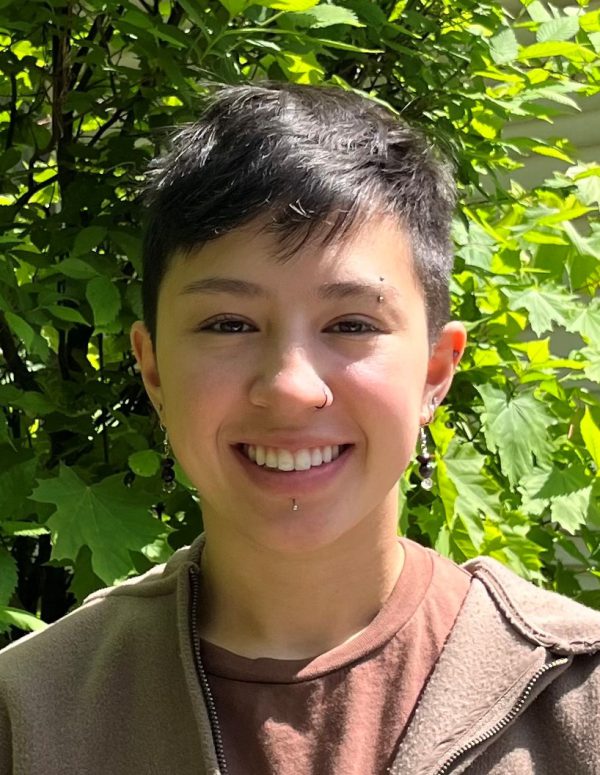
Cavan Bonner ’21
Bonner has spent the past two years working as a research staff member in industrial and organizational psychology at Purdue University. His NSF fellowship will take him to another Big Ten school.
“My area of research involves personality development and how personality changes over the lifespan,” he said. “It’s a pretty small sub field and there are only a few doctoral programs where you can study the topic with an expert. The University of Illinois is one of them.”
Bonner further hopes the fellowship will propel his career toward a tenure-track job at a research university. He said K helped prepare him well for that trajectory through a broad range of subjects, not only in psychology, but in adjacent fields such as sociology and statistics. Bonner also credits his experience working as a research assistant for Ann V. and Donald R. Parfet Distinguished Professor of Psychology Gary Gregg, and Associate Professor of Psychology Brittany Liu for training him in skills that he frequently uses in his research work after graduation.
“I was drawn to personality psychology because it provides an integrative framework to study many of the research questions I have about human development, aging and change over time,” Bonner said. “My SIP and research assistant experiences at K helped me realize that I could address these questions from a personality perspective, but my professors also exposed me to so many other fields and perspectives that inform my research. I primarily identify as a personality and developmental psychologist, but ultimately I hope that this fellowship helps me contribute to the broader science of aging and development.”

Angel Banuelos ’21
Banuelos, a biology major and anthropology/sociology minor at K, is in his second year at the University of Wisconsin, where he said he studies genetics—specifically the construction of the vertebrate brain and face—under an amazing mentor, Professor Yevgenya Grinblat.
“Live beings are built by cells that are informed by DNA,” Banuelos said. “At the beginning of embryonic development, the cells split into groups. One of those groups is called the neural crest cells. Those cells go on to contribute to a whole bunch of things such as pigment cells in the skin, and cartilage and bones in the face. My project is trying to understand how neural crest cells contribute to stabilizing the very first blood vessels of the developing eye.”
Ultimately, when his graduate work is finished, he would like to steer his career towards education.

“I would like to bring research opportunities to people who don’t have higher education experience,” Banuelos said. “I would imagine starting with programs for middle schoolers, then high schoolers and adult learners. I want to be part of research addressing community problems and conducted by the people who live there.”
Banuelos credits inspiration for his career goals to the many mentors he had at K. Natalia Carvalho-Pinto, former director of the intercultural center, and Amy Newday, who provided guidance in food and farming justice, served as role models for applying theory to meet material needs.
“In my NSF application, I described meeting community needs as a central component of my scholarship,” he said. “Natalia and Amy are people who literally fed me while I was at K. They saw the student and the human. They handed me books, handed me plates, even welcomed my family. During a very difficult transition to grad school, they were there for me. When I’m a professor, I want to be like them. I’m grateful for the growth opportunities I had at K through the Intercultural Center and food and farming.”
‘It doesn’t happen every year’
Faculty members as a whole across STEM departments are taking great pride in these K representatives earning fellowships as it speaks to the quality of students at the College and their studies, especially as the number of recipients stands out.
“At K, it is exciting when even a single student wins a fellowship, and it certainly doesn’t happen every year,” Professor of Physics Tom Askew said. “It’s special to have four in one year.”

